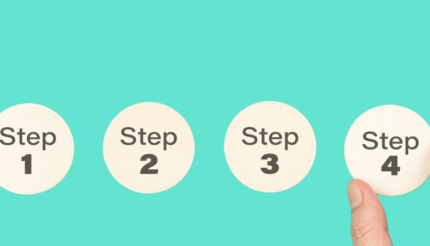Are we a world full of Philomaths? (For those of us that didn’t know, a Philomath is a lover of learning and studying. See? You’ve learned something already!)😉 I think it is fair to say that many of us love to learn. We love to gain new skills, improve our abilities and develop our interests and passions.
Thats’s not to say that we are all fans of sitting poring over textbooks or taking exams, there are so many ways to learn that it doesn’t necessarily have to feel like ‘studying’.
That said, I admit that I am a committed lifelong learner, and have spent years studying! Between the ages of 18 and 26, I studied for a BSc, an MSc and then a PhD before going to work as a researcher for a Research Institute (still learning and getting paid to do so — perfect)! I then returned to my studies in 2015 to do an MBA, so I guess some of us do like studying more than others!
Becoming a Great Learner
Life is a learning experience, learning and personal growth go hand in hand. When you consider the relative speed with which young children learn to talk and to read, it shows how we are ‘designed’ to learn — children absorb and learn a lot from being around others and imitating their actions.
There are 4 predominant learning styles — different methods of understanding new information and how individuals take in and remember information (there is plenty of further reading on the subject if you would like to learn more)!
- Visual (pictures, videos, diagrams, YouTube, live speakers)
- Auditory (discussion, lectures, music, podcasts, YouTube)
- Reading/Writing (reading texts / business books, making lists / taking notes)
- Kinaesthetic (hands-on activities, experimentation, movement, practice)
Whilst we may all have a preferred way to learn from these main styles, in truth we are likely to favour a crossover of categories, or indeed prefer different learning styles for different tasks.
Take learning to ride a bike — I would imagine that most people would have far more success from physically getting on a bike and giving it a go than from reading about how to do it or listening to verbal instructions – yelling parent or otherwise!
Or, if you were trying to draw a picture of something that you had never seen before and did not know what it looked like (sounds like a board game idea in the making!) you are likely to have more success looking at pictures or following a video than just picking up a pencil and trying to draw a mystery object!
With such a variety of ways to learn, it makes sense that we would apply different learning methods to suit the situation.
‘Business Boosting’ Learning
There are plenty of options for learning in order to boost your business, you can read books, periodicals, or a blog. Or watch a video, a documentary or TED Talk, or listen to an audiobook or podcast. Join a business networking chapter and learn from them, work with a mentor or a business coach (Hi!) 👋 or attend business events. Learning isn’t just about studying; it has a much wider reach.
For those of you who like a podcast, top of my list of recommendations is the Business Excellence podcast hosted by James Vincent. James is the Performance Director at ActionCOACH UK, and his podcast is excellent. If you like the High Performance Podcast or Diary of a CEO and are looking for practical steps that you can action to achieve more for your business, then it is definitely worth a listen!
When it comes to learning from books, they don’t have to be ‘instructional’ or super-businessy, real-life stories can be hugely impactful. My BookCLUB attendees all agree — there is just something about learning from others, with the relatable highs and lows and everyday back story of running a business that is so accessible. I highly recommend “Let It Go” which is the story of software entrepreneur and philanthropist Dame Stephanie Shirley and also “Shoe Dog”, the story of the founder of Nike, Phil Knight.
Don’t be put off business conferences and events because you think they might not be your ‘thing’, or you won’t know enough — they are a fabulous place to network and learn. I’ve been to the BizX conference for the past 5 years and can’t speak of it highly enough! There are so many different speakers from such diverse backgrounds and with different approaches. You’ll come away with so many business learnings, even from (or frequently especially from) those speakers who may not seem obviously relevant to your business. BizX 2024 is in Liverpool on 18/19 April — why not give it a try, I might see you there! For more info, just contact me and I can send you details.
How to be a ‘Better Learner’
There are numerous studies about the optimum time for learning and, while there is a vague consensus that between 10am-noon and 2pm-10pm the brain is most receptive, there are also studies that suggest critical thinking and analytical skills are at their most effective between 2pm and 5pm!
As with learning styles, it likely varies from person to person, and potentially even from week to week for the same person, depending on what else is going on in their lives. Even the sprightliest early bird may struggle to feel ready and raring for an early morning session if they have slept badly the night before.
To maximise your learning, find the window (of time … unless you also have a lovely window seat!) where you feel most able to focus and engage and then schedule your reading time or coaching or networking at these times during your week. I’m not entirely sure what time of day is the best for me, but I have been thinking about it recently, with a view to start blocking out some learning time in my default diary. I do a Coaches’ Club 8-9am on Tue/Wed/Thu mornings which I think works well as opposed to later in the evening — perhaps an early start suits me before any distractions during the day!
It is also helpful to schedule some time for introspection and reflection. This can help you to process the information you are accessing. Journalling can play an important role in personal development. Try writing down what you’ve learned each day — look for lessons and review what happens each day in your journal to help yourself remember. It can also help you to realise how little you know and how much else there is to know about the subject you want to learn!
Generalist or Specialist?
Generalists have a broad range of knowledge, while specialists are experts in their particular area of study and subject matter.
Brad Sugars’ Train/Boat metaphor perfectly explains the difference between a generalist and a specialist, and I think gives a good understanding of the concept.
A specialist is like a train — you’re always on track. Your speed might vary, obstacles might show up on your way, but you’ll always be on the same route. You have a specific final destination.
When I was studying for my MBA, I was definitely a specialist! When reading books for my studies, I would only read the parts that were specifically relevant to what I needed for the course. My specific destination was gaining the relevant knowledge to gain my qualification.
A generalist is like a boat — you can adjust to the tide changes and make your boat go where you want to go. You are able to pursue your dreams and take advantage of – and harness – the wind and waves. In this scenario, you do have to overcome storms and days when there are no winds blowing, but nonetheless you will still get to your destination.
5 years on from my ActionCOACH training, and I would say I have become more like the boat. I am actively going back to some of those MBA books and reading them from start to finish, simply for my own love of learning and continuous development. There is so much more to them that I didn’t know!
Every part of our life is a learning opportunity — there is not always a right or wrong way, the only failure is the failure to participate. Step outside your comfort zone and turn every activity into a learning activity.
Keep learning. Be curious. Have fun with it and become a lifelong learner.





